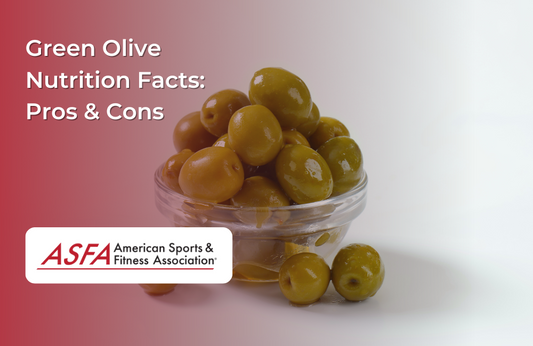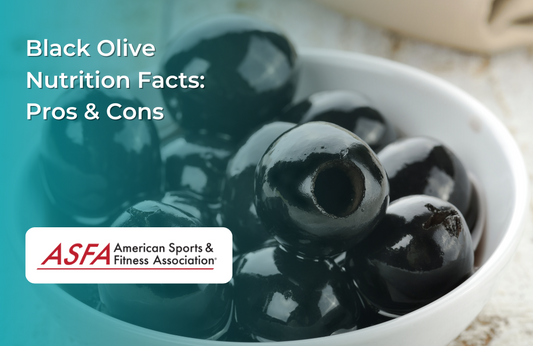Vitamin C: The Ultimate Guide to Boosting Immune Health, Fighting Disease, and Enhancing Well-Being
The immune system is an incredibly complex and sophisticated network of cells, tissues, and organs that work in harmony to defend our bodies against harmful invaders such as bacteria, viruses, and other pathogens. This defense system is our primary safeguard against illness, playing a crucial role in maintaining overall health and longevity. Central to the optimal functioning of the immune system is proper nutrition, and among the many nutrients essential to boost your immune system, Vitamin C stands out as one of the most powerful and versatile.
Understanding the Immune System: The Body's Defense Mechanism
Before diving into the myriad benefits of Vitamin C, it’s essential to grasp the basics of how the immune system operates. The immune system is composed of several key components that work together to protect the body:
-
White Blood Cells (Leukocytes): These cells are the cornerstone of the immune system, constantly patrolling the body for signs of infection or disease. There are several types of white blood cells, including lymphocytes (B cells and T cells) and phagocytes, each playing a specific role in the immune response.
-
Antibodies: These proteins are produced by B cells in response to antigens, which are foreign substances that trigger an immune response. Antibodies bind to antigens, neutralizing them and marking them for destruction by other immune cells.
-
Lymphatic System: This network of vessels and nodes helps circulate lymph, a fluid containing white blood cells, throughout the body. The lymphatic system also filters out harmful substances and supports the production of immune cells.
-
Bone Marrow: The bone marrow is where new blood cells, including white blood cells, are produced. It plays a critical role in maintaining a robust immune system by replenishing the supply of immune cells.
The immune system is also equipped with a memory function, allowing it to recognize and respond more effectively to pathogens it has encountered before. This adaptive immunity is the principle behind vaccinations, which prime immune systems to defend against specific diseases.
1. What is the Immune System?
The immune system is a complex network of cells, tissues, and organs that work together to defend the body against harmful pathogens, such as bacteria, viruses, and other foreign substances. It plays a crucial role in maintaining overall health and well-being by protecting the body from infections, diseases, and other health threats. A healthy immune system is essential for fighting off illnesses and infections, and it can be supported by a balanced diet, regular physical activity, sufficient sleep, and effective stress management.
Vitamin C: A Nutritional Powerhouse for Immune Support
Vitamin C, also known as ascorbic acid, is a water-soluble vitamin that is crucial for the growth, development, and repair of all body tissues. It is particularly celebrated for its role in bolstering the immune system, but its benefits extend far beyond this. Below, we explore in detail how Vitamin C supports immune health, fights disease, and enhances overall well-being. Maintaining a healthy diet rich in vegetables, fruits, proteins, and healthy fats is essential for optimal health and effective immune function.
1. Vitamin C as a Potent Immune Function Booster
Vitamin C is widely recognized as one of the most effective nutrients for building a strong immune system and enhancing immune function. It plays multiple roles in supporting the immune system, making it a vital component of your overall health strategy.
-
Enhancing White Blood Cell Production: Vitamin C stimulates the production and activity of white blood cells, particularly neutrophils, lymphocytes, and phagocytes. Neutrophils, for example, are among the first responders to infection, engulfing and destroying harmful pathogens. Vitamin C not only increases the number of these cells but also enhances their function, allowing for a more robust immune response.
-
Improving Phagocytosis: Phagocytosis is the process by which phagocytes engulf and digest pathogens and debris. Vitamin C enhances this process, making the immune system more efficient at clearing infections. By supporting the functionality of phagocytes, Vitamin C ensures that the body can quickly and effectively neutralize threats.
-
Supporting Skin Barrier Function: The skin is the body’s first line of defense against pathogens. Vitamin C supports the health of the skin by promoting collagen synthesis, which is essential for maintaining the structural integrity of the skin. A strong and healthy skin barrier is crucial for preventing pathogens from entering the body.
-
Modulating the Inflammatory Response: While inflammation is a natural part of the immune response, excessive inflammation can cause tissue damage and contribute to chronic diseases. Vitamin C helps regulate the body’s inflammatory response, preventing it from becoming excessive and damaging healthy tissues.
2. How Vitamin C Supports Immune Cells
Vitamin C is an essential nutrient that plays a vital role in supporting immune cells, particularly white blood cells. It helps to boost the production of white blood cells, which are responsible for fighting off infections and diseases. Vitamin C also acts as an antioxidant, protecting immune cells from damage caused by free radicals. Foods rich in vitamin C, such as citrus fruits, leafy greens, and bell peppers, can help support immune function and overall health.
2. Antioxidant Power: Neutralizing Free Radicals
One of the most critical functions of Vitamin C is its role as a potent antioxidant. Antioxidants are molecules that protect the body from oxidative stress, a harmful process caused by an excess of free radicals.
-
What Are Free Radicals? Free radicals are unstable molecules that can cause significant damage to cells, proteins, and DNA. They are produced naturally during normal metabolic processes, but their levels can increase due to external factors such as pollution, UV radiation, smoking, and poor diet. When free radicals accumulate, they cause oxidative stress, which is linked to various chronic diseases, including heart disease, cancer, and neurodegenerative disorders.
-
How Vitamin C Neutralizes Free Radicals: Vitamin C neutralizes free radicals by donating an electron, stabilizing these unstable molecules and preventing them from causing cellular damage. This antioxidant activity is crucial for protecting the body’s cells from oxidative stress, thereby reducing the risk of chronic diseases.
-
Supporting Other Antioxidants: Vitamin C also plays a unique role in regenerating other antioxidants, such as Vitamin E, after they have been oxidized. This synergistic action enhances the overall antioxidant capacity of the body, providing more comprehensive protection against oxidative stress. Incorporating foods high in healthy fats, along with other vitamins and minerals, is essential for boosting immune efficacy and resilience.
3. The Role of Vitamin C in Cancer Prevention
Research suggests that Vitamin C may play a role in cancer prevention, primarily through its antioxidant properties and its ability to support the immune system and keep the immune system strong.
-
Inhibiting Tumor Growth: One of the ways Vitamin C may help prevent cancer is by inhibiting angiogenesis, the formation of new blood vessels that tumors need to grow. By limiting the blood supply to tumors, Vitamin C can slow down their growth and proliferation.
-
Supporting Immune Surveillance: The immune system constantly monitors the body for abnormal cells, including cancerous cells. Vitamin C enhances the ability of immune cells to detect and eliminate these cells before they can develop into full-blown cancer. This process, known as immune surveillance, is critical for preventing the formation and spread of tumors.
-
Reducing Chronic Inflammation: Chronic inflammation is a well-established risk factor for many types of cancer. Vitamin C’s ability to modulate the inflammatory response helps reduce chronic inflammation, thereby lowering the risk of cancer development.
-
Direct Effects on Cancer Cells: In high doses, Vitamin C has been shown to have direct cytotoxic effects on cancer cells in laboratory studies. While more research is needed to understand this mechanism fully, it suggests that Vitamin C could potentially be used as a complementary therapy in cancer treatment.
4. Vitamin C and Longevity: Protecting Against Age-Related Diseases
The anti-aging and longevity benefits of Vitamin C are closely linked to its ability to combat oxidative stress and support immune function. By protecting the body from damage at the cellular level, Vitamin C may contribute to a longer, healthier life. Additionally, eating healthy foods rich in Vitamin C and other nutrients is essential for overall well-being and longevity.
-
Preventing Age-Related Diseases: Oxidative stress is a major contributor to aging and the development of age-related diseases such as heart disease, Alzheimer’s disease, and cataracts. By reducing oxidative damage, Vitamin C may help protect against these conditions, promoting healthy aging and extending lifespan.
-
Cardiovascular Health: Vitamin C supports cardiovascular health by preventing the oxidation of LDL cholesterol, a process that leads to the formation of plaques in the arteries and increases the risk of heart disease. Additionally, Vitamin C promotes the production of collagen in blood vessels, helping to maintain their elasticity and prevent atherosclerosis.
-
Cognitive Function: The brain is highly susceptible to oxidative stress due to its high oxygen consumption and lipid-rich environment. Vitamin C’s antioxidant properties help protect brain cells from damage, potentially reducing the risk of cognitive decline and neurodegenerative diseases like Alzheimer’s.
-
Skin Health and Aging: Vitamin C is essential for the synthesis of collagen, which is crucial for maintaining the skin’s structure and elasticity. By supporting collagen production, Vitamin C helps reduce the appearance of wrinkles and keeps the skin looking youthful and healthy.
5. Vitamin C in Wound Healing and Skin Health
Vitamin C is vital for wound healing due to its role in collagen synthesis and its ability to promote the repair of damaged tissues.
-
Collagen Production: Collagen is the most abundant protein in the body and is a key component of skin, bones, tendons, and blood vessels. Vitamin C is a cofactor for the enzymes involved in collagen synthesis, making it essential for the formation and repair of connective tissues. This is why Vitamin C is crucial for wound healing, as it helps in the formation of new tissue and speeds up the healing process.
-
Wound Healing: Adequate levels of Vitamin C are necessary for proper wound healing. It not only aids in the synthesis of collagen but also helps reduce the risk of infection by supporting the immune system. Vitamin C promotes the production of new skin cells and accelerates the healing of cuts, burns, and other injuries.
-
Skin Protection and Anti-Aging: Vitamin C also plays a significant role in protecting the skin from damage caused by UV radiation. It neutralizes free radicals generated by sun exposure and supports the repair of damaged skin cells. This protective effect helps prevent premature aging, sunburn, and skin cancer, making Vitamin C an essential nutrient for maintaining healthy, youthful skin. Consuming healthy foods rich in Vitamin C is recommended for overall skin health and wound healing.
6. Boosting Mood, Reducing Stress, and Enhancing Energy Levels
Vitamin C’s benefits extend to mental health and overall well-being, making it a crucial nutrient for maintaining emotional and psychological balance.
-
Mood Enhancement: Vitamin C is involved in the synthesis of neurotransmitters such as serotonin, which regulates mood and emotional well-being. Adequate levels of Vitamin C have been associated with improved mood and a reduction in symptoms of depression and anxiety. Some studies suggest that Vitamin C supplementation may be beneficial for individuals experiencing stress-related mood disturbances.
-
Stress Reduction: Chronic stress can deplete Vitamin C levels in the body, as the adrenal glands, which produce stress hormones like cortisol, contain high concentrations of Vitamin C. By replenishing Vitamin C levels, you can help support adrenal function and reduce the production of cortisol, thereby alleviating stress and promoting relaxation. Additionally, managing stress through practices like deep breathing, exercise, and meditation can further enhance the benefits of Vitamin C in stress reduction.
-
Increased Energy Levels: Vitamin C plays a role in energy production by supporting the synthesis of carnitine, a molecule that transports fatty acids into the mitochondria, where they are converted into energy. This process helps reduce fatigue and increase overall energy levels, making Vitamin C an important nutrient for combating tiredness and boosting vitality.
Maximizing Your Vitamin C Intake
Given the extensive benefits of Vitamin C, ensuring an adequate intake is crucial for maintaining strong immune systems and optimal health. The recommended daily intake of Vitamin C varies based on age, gender, and life stage, but most adults require about 65-90 milligrams per day, with a safe upper limit of 2,000 milligrams per day. Below are some practical ways to maximize your Vitamin C intake.
1. Dietary Sources of Vitamin C: Citrus Fruits and More
The best way to get Vitamin C is through a balanced diet rich in fruits and vegetables. Here are some of the most Vitamin C-rich foods:
-
Citrus Fruits: Oranges, grapefruits, lemons, and limes are excellent sources of Vitamin C. A single medium orange provides about 70 milligrams of Vitamin C, nearly meeting the daily requirement for most adults.
-
Berries: Strawberries, raspberries, and blueberries are packed with Vitamin C. For example, a cup of strawberries contains about 85 milligrams of Vitamin C.
-
Kiwi: This small, nutrient-dense fruit is a Vitamin C powerhouse, with one kiwi providing about 71 milligrams.
-
Bell Peppers: Red and green bell peppers are among the richest sources of Vitamin C. A single red bell pepper provides over 150 milligrams, making it an excellent choice for boosting your intake.
-
Tomatoes: Fresh tomatoes and tomato juice are good sources of Vitamin C. A medium-sized tomato provides about 20 milligrams, while a glass of tomato juice can provide up to 33 milligrams.
-
Cruciferous Vegetables: Broccoli, Brussels sprouts, and cauliflower are also high in Vitamin C. A cup of cooked broccoli contains about 51 milligrams, making it a nutritious addition to any meal.
2. Immune-Boosting Foods
In addition to vitamin C, there are many other immune-boosting foods that can help support immune function. These include:
-
Citrus fruits, such as oranges, grapefruits, and lemons
-
Leafy greens, such as spinach, kale, and collard greens
-
Berries, such as blueberries, strawberries, and raspberries
-
Nuts and seeds, such as almonds, sunflower seeds, and pumpkin seeds
-
Fatty fish, such as salmon, tuna, and mackerel
-
Sweet potatoes, which are rich in vitamin A
-
Mushrooms, which have antimicrobial properties
These foods can help support immune function by providing essential nutrients, such as vitamins, minerals, and antioxidants.
2. Vitamin C Supplements
While it's best to get your nutrients from whole foods, Vitamin C supplements can be a convenient way to ensure you're meeting your daily requirements, especially if your diet is lacking in fruits and vegetables.
-
Types of Supplements: Vitamin C supplements come in various forms, including tablets, capsules, chewable gummies, and powders. Some supplements are combined with other nutrients, such as zinc or bioflavonoids, which can enhance the absorption and effectiveness of Vitamin C.
-
Choosing a Supplement: When choosing a Vitamin C supplement, consider factors such as dosage, form, and any additional ingredients. Look for high-quality products that have been tested for purity and potency.
-
Dosage and Safety: While Vitamin C is generally safe, it's important not to exceed the recommended dosage, as extremely high doses can cause side effects such as diarrhea, nausea, and stomach cramps. Stick to the recommended daily intake unless advised otherwise by a healthcare professional.
Lifestyle Factors for a Healthy Immune System
In addition to a balanced diet, there are several lifestyle factors that can help support a healthy immune system. These include:
1. The Impact of Stress on the Immune System
Chronic stress can have a negative impact on the immune system, making it more susceptible to infections and diseases. Stress can suppress the production of white blood cells, which are essential for fighting off infections. Effective stress management techniques, such as meditation, yoga, and deep breathing, can help reduce stress and support immune function.
Regular physical activity can also help support immune function by boosting the production of white blood cells and improving circulation. Aim for at least 30 minutes of moderate-intensity exercise per day.
Getting sufficient sleep is also essential for immune function. Aim for 7-9 hours of sleep per night to help support immune function.
Overall, a healthy lifestyle that includes a balanced diet, regular physical activity, sufficient sleep, and effective stress management can help support a strong and healthy immune system.
Conclusion: Embracing the Power of Vitamin C for Optimal Health
Vitamin C is undeniably one of the most important vitamins for maintaining a healthy immune system and overall well-being. Its powerful antioxidant properties, ability to boost immune function, and role in disease prevention make it an essential nutrient that should be prioritized in your daily diet.
From protecting against oxidative stress and supporting wound healing to enhancing mood and reducing stress, the benefits of Vitamin C are vast and far-reaching. By incorporating Vitamin C-rich foods into your diet and considering supplements when necessary, you can ensure that your body has the resources it needs to function at its best.
Whether you're aiming to prevent illness, support healthy aging, improve skin health, or simply boost your energy levels, Vitamin C offers a wide range of benefits that can help you achieve your health goals. Make Vitamin C a regular part of your daily routine by enjoying citrus fruits, berries, and other Vitamin C-rich foods, and consider supplementation if needed to ensure you're meeting your body's needs.
By prioritizing your Vitamin C intake, you can support your immune system, protect against disease, and enjoy a healthier, more vibrant life—one that's fortified by the protective power of this essential nutrient.





